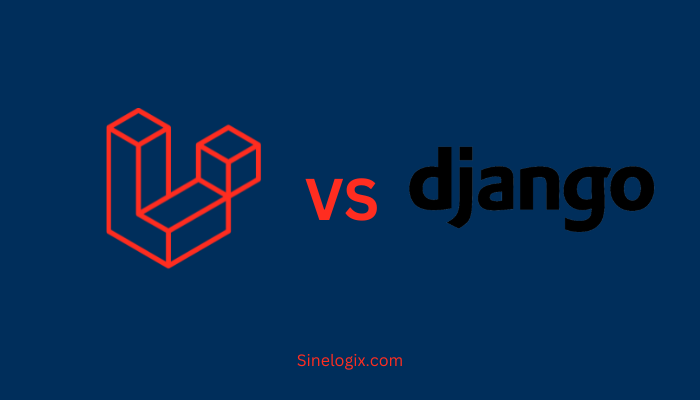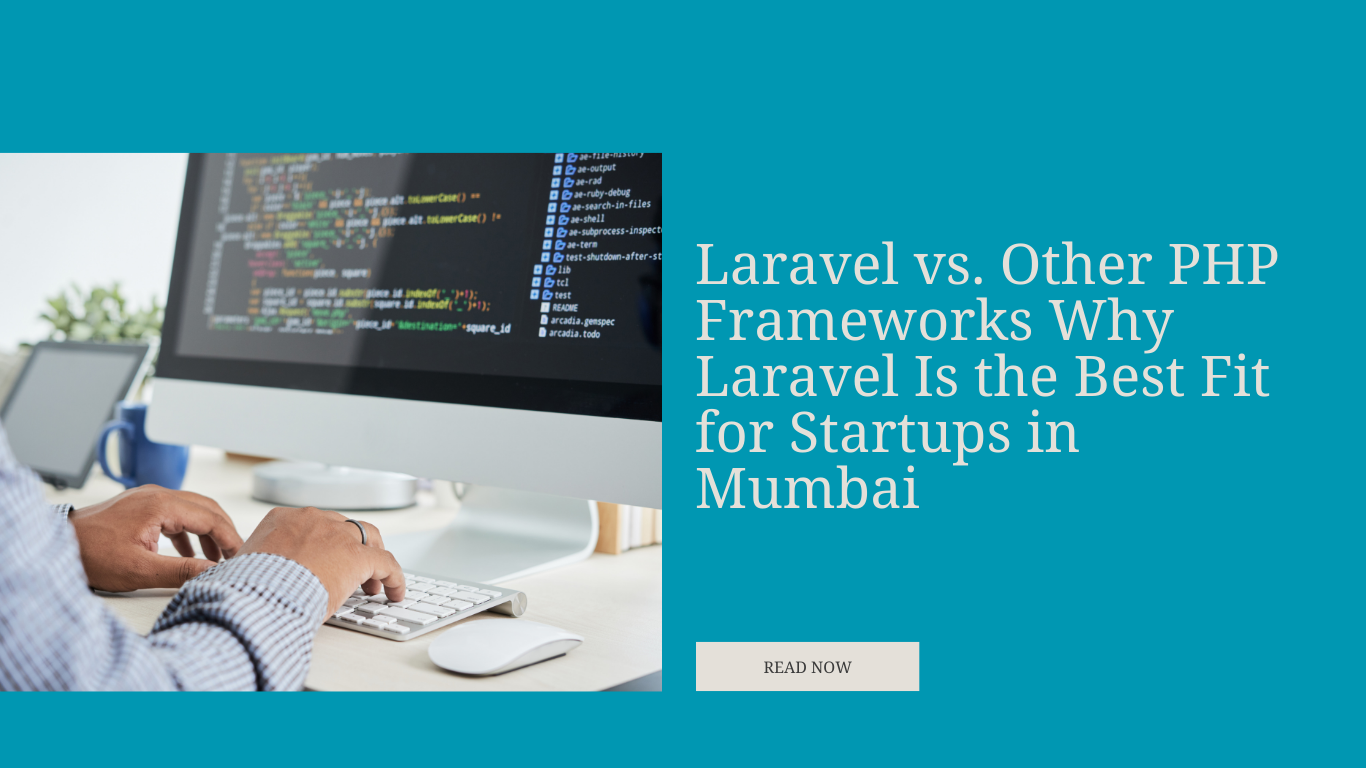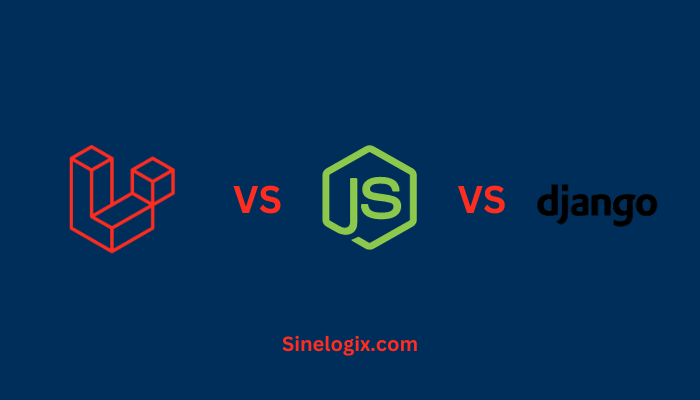In the vast realm of web development, selecting the right framework significantly impacts project success. This in-depth analysis aims to dissect the nuances of Laravel and Django, shedding light on their unique features and paradigms.
By examining these frameworks, developers can make informed choices aligned with their project requirements.
Features
Laravel and Django represent distinct paradigms in web development, each offering a unique set of features.
Laravel, a PHP framework, is celebrated for its elegant syntax and developer-friendly experience. It offers an expressive ORM named Eloquent, a robust templating engine called Blade, and a convenient query builder. Laravel adheres to the convention over configuration principle, promoting simplicity and rapid application development.
Django, a Python framework, stands out for its high-level architecture and emphasis on clean, pragmatic design. It includes an ORM system that supports various databases, a built-in admin interface for content management, and a powerful URL routing mechanism. Django’s design philosophy emphasizes DRY (Don’t Repeat Yourself) and encourages rapid development.
Market Usage Statistics
Analyzing the market usage statistics of Laravel and Django provides insights into their real-world adoption. Laravel, as a PHP framework, has gained widespread popularity, particularly in the startup and mid-sized project space. Its vibrant community and rich ecosystem of packages available through Composer contribute to its success.
Django, rooted in the Python ecosystem, has garnered a strong user base, especially in applications requiring a high level of security and rapid development. Its ease of use and clean, pragmatic design principles make it popular in various project domains.
Popularity Over the Years
Exploring the historical popularity of Laravel and Django unveils insights into their evolution and sustained relevance. Laravel has witnessed a meteoric rise in popularity, becoming one of the most sought-after PHP frameworks. Its commitment to modern development practices and a focus on developer experience contribute to its widespread adoption.
Django, with its Pythonic approach, has maintained a steady presence. Its growth has been consistent, attracting developers seeking a high-level framework with robust security measures and rapid development capabilities.
Pros and Cons of Laravel and Django
To make informed decisions, it’s essential to assess the strengths and weaknesses of each framework.
Laravel’s Pros:
- Elegant syntax and developer-friendly features.
- Large and active community with extensive documentation.
- Rich ecosystem of packages available through Composer.
- Convention over configuration for streamlined development.
Laravel’s Cons:
- May not be as suitable for large, enterprise-level projects with complex requirements.
- Convention over configuration may limit flexibility in certain scenarios.
Django’s Pros:
- High-level architecture with clean, pragmatic design.
- Built-in admin interface for content management.
- Emphasis on rapid development and security.
- DRY principle for efficient code reuse.
Django’s Cons:
- May have a steeper learning curve, especially for beginners.
- Strict adherence to its design philosophy may limit flexibility in certain scenarios.
- Requires familiarity with Python for effective development.
Applications
Understanding the applications of Laravel and Django is crucial for choosing the right framework for a given project.
Laravel Applications:
- Content management systems (CMS).
- E-commerce platforms.
- Small to medium-sized web applications.
- Projects where rapid development is a priority.
Django Applications:
- Rapid development of secure and high-level web applications.
- Content-heavy websites and data-driven applications.
- Projects where the Python ecosystem is preferred.
Laravel Vs Django: A Detailed Comparison
Similarities and Differences
While both Laravel and Django aim for web application development, they differ significantly in their design philosophies and approaches.
Similarities:
- Both frameworks emphasize rapid development.
- Have active communities contributing to their ecosystems.
- Embrace modern development practices.
Differences:
- Laravel is a PHP framework, emphasizing convention over configuration.
- Django is a Python framework, emphasizing clean, pragmatic design and security.
- Laravel’s ecosystem is larger and more diverse, catering to a wider range of project sizes and complexities.
- Django’s Pythonic approach and emphasis on security make it ideal for data-driven applications and content-heavy websites.
Laravel Vs Django: Which Should You Choose?
The decision between Laravel and Django hinges on a thorough evaluation of project needs and team expertise.
Consider Laravel if:
- You prioritize ease of use and quick development.
- Your project is relatively small to medium-sized.
- You value the simplicity and elegance of Laravel’s syntax.
Consider Django if:
- Your project requires high-level security and robust content management.
- Your project is content-heavy and data-driven.
- You prefer working within the Python ecosystem.
Alternatives of Laravel and Django
While Laravel and Django are popular choices, exploring alternatives can provide developers with additional options tailored to specific project needs.
Flask (Python):
- A lightweight and modular Python framework suitable for smaller projects.
- Ideal for projects requiring simplicity and flexibility.
Symfony (PHP):
- Suitable for large-scale projects with a modular and flexible architecture.
- Ideal for developers comfortable with a configuration-centric approach.
Express.js (Node.js):
- Minimalist web application framework for Node.js.
- Ideal for building APIs and single-page applications.
Related Articles:
Conclusion
In conclusion, the choice between Laravel and Django is pivotal, requiring careful consideration of various factors. Both frameworks have their strengths and weaknesses, and the right choice depends on the specific needs of the project.
Laravel excels in rapid application development and is well-suited for startups and smaller teams. Django, with its high-level architecture and security emphasis, is an excellent choice for data-driven applications and content-heavy websites.




